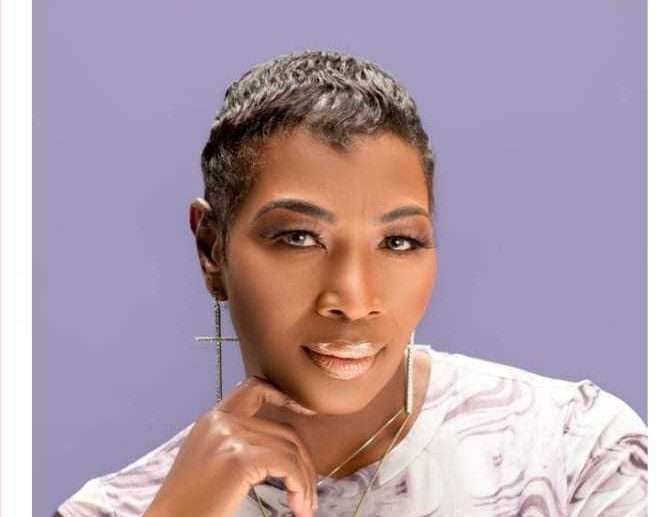on
By Sydnee Walcott
While killing two birds with one stone is challenging for some, one woman is defying those odds.
Karen Samuels moved to Canada from Jamaica at the age of three. At a young age, it wouldn’t have been easy for her to describe the transition from one country to another. However, as an adult, she now views the transition as confusing.
Samuels had these feelings, because she felt she was losing her two central male role models present in her life. These two role models were her father and her late grandfather. Although she moved to Canada with her grandmother, she moved in with her mother, who had left her when she was six months old. This change made her feel like she was losing her grandmother as well.
Samuels describes she felt pushed towards having a relationship with a woman who was supposed to be a mother to her. Unfortunately, Samuels’s mother was never a mother to her. She never felt any love from her, and the love disappeared the moment she met her.
Samuels became a victim of colorism and featurism at the hands of her mother, and it played a role in her struggles with mental health. She knew there was a mental health issue when she was eight. However, she didn’t fully realize it until she turned 46.
Anxiety was the first mental health issue Samuels experienced. She would forget where she was and what she was doing. From there, it led to confusion because she didn’t talk about her issues with anger, lack of self-love, wanting to be someone else, and thinking she wasn’t worthy enough – all of this because of the lack of a mother’s love.
Years of professional therapy and understanding that it’s normal to find help is how Samuels overcame her struggles with mental health. She also uses her passions to help deal with her mental health struggles: staying physically active, maintaining an organized space, and music are some of her passions, and the ability to self-reflect has become a life changer for her. Cleaning helps her declutter the negative thoughts she has in her head. Going to the gym helps her release feelings. The most important one will be for her to acknowledge a problem and what she can do to overcome it.
The biggest thing she has done as a mental health advocate was to put herself on a platform and showcase relatability. Through this, Samuels has shown that not everyone who suffers from mental issues has an addiction or is incapable of moving past it.
She did not have any advocacy for mental health when growing up, so Samuels advocates for individuals who are dealing with mental health challenges; something that she wished would have been done for her when she was growing up.
“I had a lot of misconceptions on what anything mental meant,” said Samuels. She said there would be a lot of negative labels and stigmas she did not want to be associated with, and upon realization that these misconceptions were false, Samuels put herself out there for others to be able to see that anything was possible, it just took working on yourself.
“We can get through this together,” she said.
Within the Black community, there is a stigma surrounding mental health. Samuels’ advice is for people to acknowledge that if something does not feel right, to deal with the feelings that come with it. Acknowledging a problem shows courage and strength. The weakness is when one hides it and doesn’t get help.
As a mental health advocate, she enjoys giving someone the courage to share their story and relate to them. Samuels would like to do more public speaking on mental health in any setting for people of all ages. She is also in the process of piecing together her story to share with the community.
As someone who grew up in the Jane and Finch area, Samuels likes to give back and prove not everyone in the neighborhood is a criminal. Her fondest memory of being in the area was feeling a sense of community. Samuels misses how everyone knew each other and looked out for one another.
“The whole community was a family,” said Samuels, “It is not something that you witness anymore.”
Samuels would like to see the Jane and Finch community revert to how it was when she was a child.
She wants more recreational options for kids besides basketball and track and field for example: horseback riding, gymnastics, and skating. “Just something different from the norm for that neighborhood,” she said.
Samuels shared with me about the time that she lost everything and ended up at a woman’s shelter. There she met other women who experienced the same issues. They were in a situation where all they needed was some help. Despite the challenges, Samuels overcame her homelessness by accepting the help she needed. Her time in a women’s shelter is what inspired her to want to give back.
The first giveback happened in December 2021 at the Driftwood Community Centre. She raised $7,500 for: gift cards, food, and clothing. Last year’s giveback happened at the Jane and Finch Mall and raised over $12,000. Samuels also volunteers with: Seva Food Bank, Young Bosses in Business, and Peel and Toronto Police.
It is important that we as a community recognize the work of someone like Karen Samuels; it is heroines like her that keep our community together.
Stay in the loop with exclusive news, stories, and insights—delivered straight to your inbox. No fluff, just real content that matters. Sign up today!














